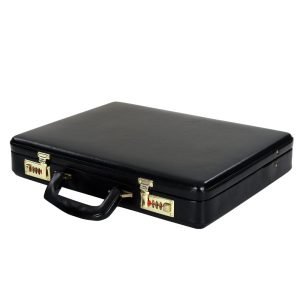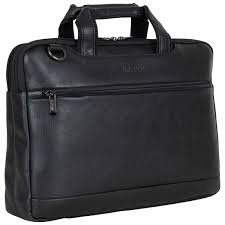Best Laptop Bags for men
Laptops have become a necessity for each one of us, this means no matter if you are young, a teenager, or even an adult we, in some other cases, are required to own laptops.
In other cases, be it a man or a woman, these days laptops are one of those devices that have to be available to each one of us. However, at present time, everyone is working- not just by walking to the office, but from home as well and within several industries (like nomads).
No doubt, laptops are determined to be one of the most incredible machines as they are capable enough to handle a wide range of tasks and suitable for students, professionals, and casual users alike.
But when you are taking laptops, you also have to carry them well. It is then and there considering the best laptop bags is what is necessary.
However, both for men and women, the choices for laptop bags differ. Hence, in this particular article, we will help you to determine the Best Laptop Bags for Men.
Find the best laptop bags for men
Whether you are a student, professional or even a digital nomad protecting your laptop is what you should never ignore.
There are high-quality bags available that not only provide protection for your device but even complement your style.
For men finding the perfect blend of style is a necessity and this means both in terms of functionality and durability.
Therefore, to help you here, we have found the Best Laptop Bags for Men that can help you to keep your laptop protected.
-
Backpack

Backpacks are one of the great choices for men when it comes to determining the best laptop bags for men.
If you are looking for a versatile and comfortable bag then backpacks are one of those. They are found to be quite versatile if you are looking to carry many things if you commute by bike or even bus.
They are great for carrying your laptop and even for carrying within yourself. Also, backpacks come in various styles and sizes which means from professional to sporty.
Benefits
Backpacks are the top choice because they help to distribute your belongings evenly and help you carry them easily.
They also keep your hands free and allow you to move freely across.
Backpacks also come with different compartments and hence you can distribute your stuff easily.
Further, backpacks are made up of durable materials and hence they are long-lasting.
-
Timbuk2 Spire Backpack

The other best laptop bag for men is the Timbuk2 Spire Backpack and suitable for urban commuters. So if you have to carry a lot of stuff then the Timbuk2 Spire Backpack is one of the great choices you can make.
It helps you to carry your laptop along with other stuff easily and makes your transportation easy.
Benefits
Timbuk2 Spire Backpack is very durable and can easily handle a lot of stuff. It is made up of high quality and water resistance.
It comes with a padded laptop compartment and helps you to protect your laptop from bumps and shocks.
Timbuk2 Spire Backpack comes with a shoulder strap and even breathable air.
There is no need for you to get worried, if rain comes, as the Timbuk2 Spire Backpack comes with a water resistance facility. This makes it a great choice for men to buy Timbuk2 Spire Backpack.
-
Everlane The Zip Backpack

Everlane The Zip Backpack is another great choice because of its sleek design and focus on sustainability.
It is made up of recycled material making it one of the prime choices. Also if you prefer a clean look then Everlane The Zip Backpack gives you the best choices.
Benefits
If you are a student or even a professional and want a clean design laptop bag then Everlane The Zip Backpack is one of those.
It comes with the maximum storage facility that can help you to carry other stuff along with your laptop.
Durable and comes in different varieties and this make it to be one of the best laptop bags for men.
-
NOMATIC Backpack

NOMATIC Backpack is known for its featured rich for travellers and even commuters. If you are one of those who have to travel a lot then NOMATIC Backpack is the best choice.
It contains expandable compartments and allows you to adjust your stuff easily.
Some of the NOMATIC Backpack even has a detachable strap that allows you to convert your backpack into a briefcase as well.
Benefits
Many NOMATIC Backpacks are compatible with TSA locks and this helps you to secure your belongings.
There are also some models of NOMATIC Backpack that feature a luggage pass-through sleeve. This helps you to secure your backpack easily.
In addition, some of the NOMATIC Backpacks also have an integrated charging cable management system and no doubt the best laptop bags for men.
-
Briefcase

When you are looking for a professional and classic look then Briefcase backpacks are also the top choice.
No matter if you are going to a business meeting or want to get a professional aesthetic then a Briefcase backpack is one of those.
The briefcase comes with a padded compartment designed easily to safeguard your laptop while travelling and even while keeping it somewhere.
Benefits
It consists of high-quality material like leather or ballistic nylon, and makes it resistant to wear and tear.
Offers a layer of protection to keep your laptop safe and along with other belongings.
When you are looking for great organisation and durability then briefcase backpacks are one of the best choices for men.
-
Tumi Alpha 3 Alpha Bravo Executive Leather Briefcase

A high-end briefcase best laptop bag for men, designed especially for business professionals.
Hence if you like durability, functionality and style all together, then it is the perfect choice you can make.
The Tumi Alpha 3 Alpha Bravo Executive Leather Briefcase is made up of high-quality leather and never goes out of style.
Benefits
Comes with a padded laptop compartment size to keep your laptop stable.
Tumi Alpha 3 Alpha Bravo Executive Leather Briefcase also comes with a detachable strap that offers flexibility while carrying a laptop.
Features TSA-approved lock, allowing you to let your bag be fixed while travelling.
The briefcase on the other hand has luggage sleeves that help you to secure it from the top.
-
Samsonite Leather Briefcase

A well-known luggage brand and the finest choice for laptop bags for men, Samsonite Leather Briefcase comes with a variety of briefcases.
The leather used within the Samsonite Leather Briefcase is tough and can be used for everyday use without getting worried. The leather is enough to protect your laptop from getting damaged.
Men can choose as per their needs as they come both for professional and casual aspects.
Benefits
Samsonite Leather Briefcase comes stylish and even functional briefcase and is perfect for everyday use.
Comes with a padded laptop compartment and has pockets to make your stuff easy to access.
If you are a business person and need to carry a lot of papers then a Samsonite Leather Briefcase is one of the great choices you can make for yourself.
Also if you are travelling frequently for your business meetings and other work, then a Samsonite Leather Briefcase can give you complete ease.
-
Kenneth Cole Reaction Slim Leather Briefcase

The other choice you can make is the Kenneth Cole Reaction Slim Leather Briefcase. One of the great options for professionals and is considered to be among the best laptop bags for men.
The briefcase comes with a slim profile and this makes it the best laptop bag for commuting.
One of the versatile options for everyday use and hence you can without any doubt make your choice.
Benefits
Some of their variety do come with RFID-blocking technology that helps you to get protected against your credit card or passport from electronic theft.
Comes with a padded laptop compartment separately for your laptop, notebooks, pen and other stuff you carry.
-
Messenger Bag

If you do not want to overload your bag or backpack then Messenger Bag is one of the most convenient choices you can make. It is among the best laptop bags for men all around the world.
They come in a variety of options and styles and make it feasible for everyday use, for work and even for schools.
Benefits
If you have to walk or go a longer way then Messenger Bag is one of the best choices in terms of carrying them.
They come with multiple compartments and pockets that can help you to arrange your stuff easily.
Messenger bags can be worn across your body easily and are considered to be more secure than backpacks.
-
Chrome Industries Citizen Messenger Bag

This type of laptop bag is a suitable choice for cyclists and even for urban commuters. Mainly, the Chrome Industries Citizen Messenger Bag is known for its iconic quick-release and waterproof constructions.
They are made up of high-quality materials like 1050D nylon and 22oz 1000D TPE tarpaulin and this makes them resistant to anything that can damage your belongings.
Benefits
Comes with a padded shoulder strap that helps your shoulder to be free from unorganised load.
Offers a lifetime guarantee on their citizen messenger bags.
This laptop bag comes with a water resistant nylon shell that can easily protect your laptop.
Summary
The choice for best laptop bags for men may vary depending upon one’s requirement or choice.
But if you are confused which one to go for then we have made available for you the top 10 best laptop bags for men. In turn, you can easily make your choice by considering your need.
Also Read:- Best Gaming Laptops in 2024








